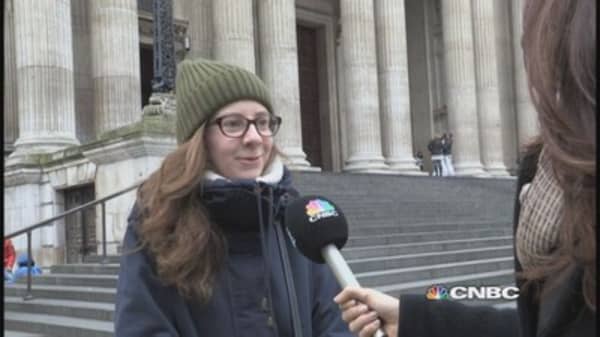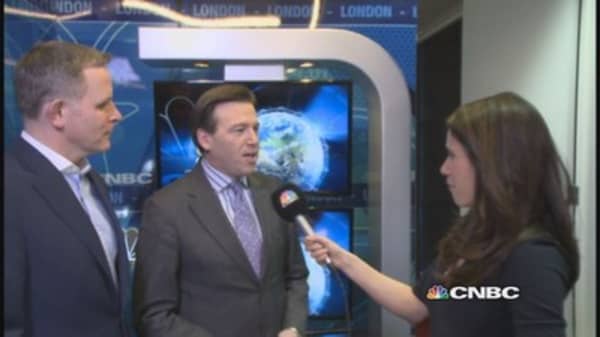If Davos didn't exist already, would it have been invented in its current form? Maybe not. There is something about the secrecy that surrounds the event which, in a era where anyone with a smartphone and a decent internet connection can research what's going on behind the headlines, seems anachronistic and out of step with other summits. This also helps fuel conspiracy theories that the meeting is full with shadowy financiers carving up the world between themselves, with the aim of profiting at ordinary people's expense.
There is also often a dangerous air of complacency around the whole event. For example, there was a consensus among delegates in recent years that the euro zone crisis had been resolved – while the years of simmering resentment and activism in countries like Greece, Spain and Italy point to the contrary. There are also protests on the fringe of Davos itself, although the emphasis by security on keeping protestors out means that it is entirely possible to be in the town all week and never notice them.
Having said that, things have changed. There was a time when, apart from the big marquee events, everything was private, off-the-record, and not to be shared with those not fortunate enough to attend. This year, many more sessions were livestreamed online, and the WEF social media team was all over Twitter, Instagram and other platforms not usually associated with the closed-off nature of the conference. WEF's own homepage was filled with newsy, clickworthy headlines like "27 inspiring quotes from Davos 2015".
WEF has also tried to move with the times by setting up meetings in Latin America, East Asia, the Middle East and North Africa, and a much-feted New Champions annual meeting in Dalian, China.
Read MoreSecret insider tips for Davos
So if not Davos, then what are the alternatives? There are a few meetings set up in direct response to WEF. Probably the best-known is World Social Forum, an anti-big business and globalization gathering held in an emerging market country. This has been going since 2001, with the next one held in Tunis, Tunisia in March but rarely attracts the kind of visitors or coverage enjoyed by WEF.
There are several key competitors in countries which may feel excluded from the main WEF business. The St Petersburg Economic Forum, one of Russian President Vladimir Putin's pet projects, is one.
And of course there is the Bilderberg Group, the meeting of the Western world's elite even more beloved of conspiracy theorists than Davos. The straight-from-a-spy-novel organization has dealt with the digital age by keeping its walls up, although the meeting now has a website with a few, very scant, details about its board and purpose.
The younger generation of business leaders and (that dread word) opinion formers seems keen on hosting apparently more open events like the growing stable of TED conferences, or technology-focused events like South by South West in Austin, Texas. Internet-savvy TED in particular has fostered an air of inclusivity, by appealing to a younger crowd and going for more provocative topics with greater mass appeal. Its 20 minute speeches, with their emphasis on teaching you something different or otherwise improving yourself, have become bourgeoisie lunchtime, commute and dinner party staples. Yet it would be difficult for WEF to go down this route without sacrificing its prized exclusivity.





















